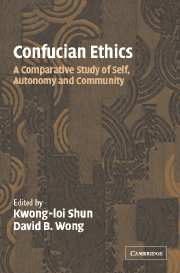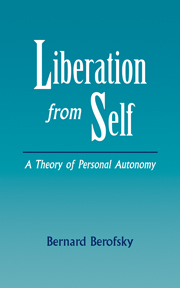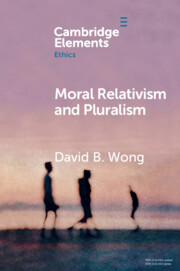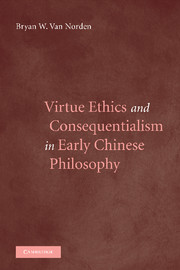Confucian Ethics
The Chinese ethical tradition has often been thought to oppose Western views of the self as autonomous and possessed of individual rights with views that emphasize the centrality of relationship and community to the self. The essays in this collection discuss the validity of that contrast as it concerns Confucianism, the single most influential Chinese school of thought. Alasdair MacIntyre, the single most influential philosopher to articulate the need for dialogue across traditions, contributes a concluding essay of commentary. This is the only consistently philosophical collection on Asia and human rights and could be used in courses on comparative ethics, political philosophy and Asian area studies.
- Book suitable for a growing number of courses in comparative ethics
- Essay by Alasdair MacIntyre will be a selling point
Reviews & endorsements
"This volume is a scholarly work on the essential features of Confucian ethics." - Wing-cheuk Chan, Brock University
Product details
September 2004Paperback
9780521796576
240 pages
229 × 152 × 14 mm
0.36kg
1 b/w illus.
Available
Table of Contents
- Introduction
- Part I. Rights and Community:
- 1. Are claim rights necessary?: a Confucian perspective Craig K. Ihara
- 2. Rights and community in Confucianism David B. Wong
- 3. Whose democracy? Which rights? A confucian critique of modern western liberalism Henry Rosemont, Jr.
- 4. The normative impact of comparative ethics: human rights Chad Hansen
- Part II. Self and Self-Cultivation:
- 5. Tradition and community in the formation of the self Joel J. Kupperman
- 6. A theory of Confucian selfhood: self-cultivation and free will in confucian philosophy Chung-ying Cheng
- 7. The virtue of righteousness in Mencius Bryan W. Van Norden
- 8. Concept of the person in Confucian thought Kwong-loi Shun
- Part III. Comments:
- 9. Questions for Confucians: reflections on the essays in comparative study of self, autonomy and community Alasdair MacIntyre.






